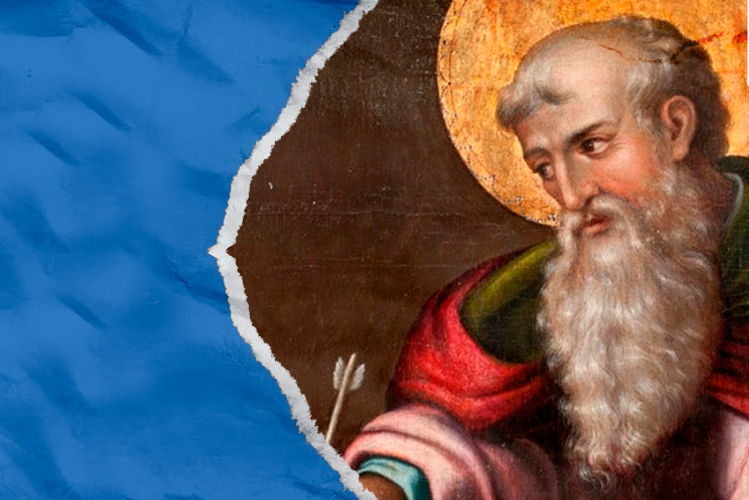Autor: Justo L. González
Pocos personajes en la historia de la iglesia han sido tan estudiados como San Agustín. Hay millares de libros acerca de su teoría del conocimiento, de sus luchas con el problema del mal, de sus dificultades con la idea de un Dios incorpóreo, de su doctrina de la gracia, y sobre todo de su conversión en el huerto de Milán.
Pero generalmente se le presta poca atención a la experiencia de Agustín como mestizo. En efecto, el padre de Agustín, Patricio, era un funcionario del Imperio Romano en la ciudad de Tagaste, en el norte de África. Allí contrajo matrimonio con Mónica, cuyas raíces étnicas parecen haber sido púnicas o bereberes. Fue de ese matrimonio bicultural que Agustín nació; y fue en esa familia, con sus tensiones entre dos culturas, que aquel futuro teólogo se crio.
Lo poco que sabemos acerca de la vida de aquella familia nos recuerda mucho de lo que nuestras familias mestizas, viviendo frecuentemente entre dos o más culturas, experimentan cada día. Mónica quería asegurarse de que su hijo no perdiera su tradición cristiana. El cristianismo de Mónica, como el de todo el norte de África, se había caracterizado por sus posiciones estrictas, que habían dado en el donatismo. Aunque Mónica misma no era donatista —o, si lo había sido, ya no lo era— todavía había varios parientes de Agustín que sí lo eran. Sin lugar a dudas, Mónica estaba absolutamente decidida a lograr que su hijo fuera también cristiano y —como el propio Agustín cuenta— oraba constantemente por la conversión tanto de su hijo como de su esposo.
Por otra parte, Mónica también sabía que para avanzar social y económicamente en aquel ambiente el ser romano era una gran ventaja, y el ser africano era todo lo contrario. Ella misma lo había experimentado en su propio matrimonio, pues la madre de Patricio y por tanto suegra de Mónica no había visto con buenos ojos el matrimonio de su hijo romano con una mujer africana. Ahora quería evitarle tales dolores a su hijo, y por tanto quería que este fuera tan romano como su padre —pero también cristiano, como ella.
Las resultantes tensiones entre aquellas dos culturas, y la constante búsqueda de su propia identidad, fueron el contexto dentro del que Agustín vivió las experiencias que cuenta en sus Confesiones. No olvidemos el papel de Ambrosio en la conversión de Agustín. En cierto modo. lo que la predicación de Ambrosio le mostró al joven Agustín fue que era posible ser cristiano devoto y al mismo tiempo expresar esa devoción en términos de la más elegante retórica grecorromana. Otras lecturas le mostraron que era posible aceptar lo mejor de entre los filósofos grecorromanos y emplearlo para entender y defender la fe cristiana.
Si de aquella experiencia de conversión pasáramos al desarrollo posterior de la teología de Agustín, veríamos que en medio de sus controversias Agustín reflejaba a veces lo que había heredado de su padre romano, y otras veces lo que había heredado de su madre africana.
Todo esto quiere decir que, como pueblo mestizo que somos, podemos descubrir dimensiones en el desarrollo del pensamiento de Agustín que de otro modo nos quedarían ocultas. Al hacerlo, estaremos comprobando lo que tantos han dicho anteriormente: que nuestra experiencia de mestizaje, en medio de todas las dificultades que crea, es también una oportunidad para entender mejor la historia y la naturaleza misma del cristianismo, y para así contribuir a su mejor entendimiento y práctica por parte de toda la iglesia.
(Lo que aquí digo en forma abreviada lo expresé antes en el libro publicado por AETH y Abingdon Press, Introducción a la teología mestiza de San Agustín, que luego adapté y traduje al inglés y ha sido publicado por Inter-Varsity Press como The Mestizo Augustine.)


Cómo puedo adquirir el libro sobre teología mestiza de Agustín de Hipona, escrito por Dr. Justo González.